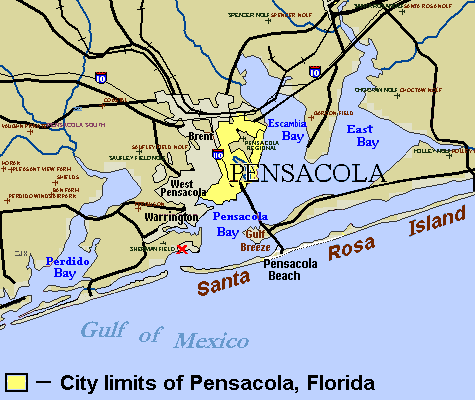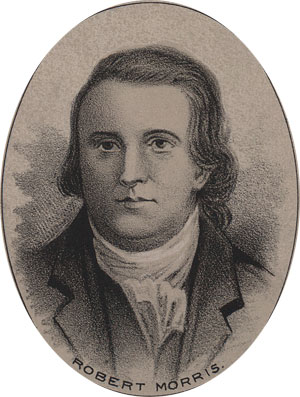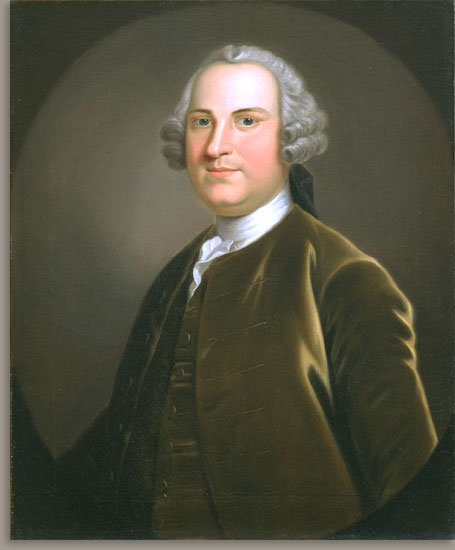|
Battle Of Lake Pontchartrain
The Battle of Lake Pontchartrain was a single-ship action on September 10, 1779, part of the Anglo-Spanish War. It was fought between the British sloop-of-war and the Continental Navy schooner in the waters of Lake Pontchartrain, then in the British province of West Florida. ''West Florida'' was patrolling on Lake Pontchartrain when it encountered ''Morris'', which had set out from New Orleans with a Spanish and American crew headed by Continental Navy Captain William Pickles. The larger crew of ''Morris'' successfully boarded ''West Florida'', inflicting a mortal wound on its captain, Lieutenant John Payne. The capture of ''West Florida'' eliminated the major British naval presence on the lake, weakening already tenuous British control over the western reaches of West Florida. Background Significant military activities of the American Revolutionary War did not occur on the Gulf Coast until 1779, when Spain entered the war. Before then, New Orleans, then the capit ... [...More Info...] [...Related Items...] OR: [Wikipedia] [Google] [Baidu] |
Gulf Coast Campaign
The Gulf Coast campaign or the Spanish conquest of West Florida in the American Revolutionary War, was a series of military operations primarily directed by the governor of Spanish Louisiana, Bernardo de Gálvez y Madrid, Count of Gálvez, Bernardo de Gálvez, against the Kingdom of Great Britain, British province of West Florida. Begun with operations against British positions on the Mississippi River shortly after Britain and Spain went to war in 1779, Gálvez completed the conquest of West Florida in 1781 with the successful siege of Pensacola. Background Spain officially entered the American Revolutionary War on 8 May 1779, with a formal declaration of war by Charles III of Spain, King Charles III. This declaration was followed by another on 8 July that authorised his colonial subjects to engage in hostilities against the British.#Gayarre, Gayarré (1867), p. 121 When Bernardo de Gálvez, the colonial Governor of Spanish Louisiana, received word of this on 21 July, he immedia ... [...More Info...] [...Related Items...] OR: [Wikipedia] [Google] [Baidu] |
Matériel
Materiel (; ) refers to supplies, equipment, and weapons in military supply-chain management, and typically supplies and equipment in a commercial supply chain context. In a military context, the term ''materiel'' refers either to the specific needs (excluding manpower) of a force to complete a specific mission, or the general sense of the needs (excluding manpower) of a functioning army. An important category of materiel is commonly referred to as ordnance, especially concerning mounted guns (artillery) and the shells it consumes. Along with fuel, and munitions in general, the steady supply of ordnance is an ongoing logistic challenge in active combat zones. Materiel management consists of continuing actions relating to planning, organizing, directing, coordinating, controlling, and evaluating the application of resources to ensure the effective and economical support of military forces. It includes provisioning, cataloging, requirements determination, acquisition, distribu ... [...More Info...] [...Related Items...] OR: [Wikipedia] [Google] [Baidu] |
Manchac, Louisiana
Manchac (also known as Akers) is an unincorporated community in Tangipahoa Parish, Louisiana, United States. Etymology Dr. John R. Swanton, a linguist who worked with Native American languages, suggested that the name Manchac is derived from ''Imashaka'', which is a Choctaw word meaning "the rear entrance." An early Choctaw language dictionary written by Cyrus Byington defines the word ''im'' as a preposition meaning "place" and ''ashaka'' meaning "the back side or rear" Willie Akers Willie Akers carried the same name as his father who founded the city of Ponchatoula. In the year 1871 Willie moved to Manchac with his family and built a house near a section of high ground that the locals called ''Jones Island''. Then in the year 1857 Willie was appointed as the first postmaster of Manchac and served as the local telegraph operator. The local community became known as "Akers" during this period. History Fort Bute or Manchac Post, named after the then British Prime Minister Joh ... [...More Info...] [...Related Items...] OR: [Wikipedia] [Google] [Baidu] |
Cannon
A cannon is a large- caliber gun classified as a type of artillery, which usually launches a projectile using explosive chemical propellant. Gunpowder ("black powder") was the primary propellant before the invention of smokeless powder during the late 19th century. Cannons vary in gauge, effective range, mobility, rate of fire, angle of fire and firepower; different forms of cannon combine and balance these attributes in varying degrees, depending on their intended use on the battlefield. A cannon is a type of heavy artillery weapon. The word ''cannon'' is derived from several languages, in which the original definition can usually be translated as ''tube'', ''cane'', or ''reed''. In the modern era, the term ''cannon'' has fallen into decline, replaced by ''guns'' or ''artillery'', if not a more specific term such as howitzer or mortar, except for high-caliber automatic weapons firing bigger rounds than machine guns, called autocannons. The earliest known depict ... [...More Info...] [...Related Items...] OR: [Wikipedia] [Google] [Baidu] |
Pensacola, Florida
Pensacola () is the westernmost city in the Florida Panhandle, and the county seat and only incorporated city of Escambia County, Florida, United States. As of the 2020 United States census, the population was 54,312. Pensacola is the principal city of the Pensacola Metropolitan Area, which had an estimated 502,629 residents . Pensacola is the site of the first Spanish settlement within the borders of the continental United States in 1559, predating the establishment of St. Augustine by 6 years, although the settlement was abandoned due to a hurricane and not re-established until 1698. Pensacola is a seaport on Pensacola Bay, which is protected by the barrier island of Santa Rosa and connects to the Gulf of Mexico. A large United States Naval Air Station, the first in the United States, is located southwest of Pensacola near Warrington; it is the base of the Blue Angels flight demonstration team and the National Naval Aviation Museum. The main campus of the University of West F ... [...More Info...] [...Related Items...] OR: [Wikipedia] [Google] [Baidu] |
Apalachicola River
The Apalachicola River is a river, approximately 160 mi (180 km) long in the state of Florida. The river's large watershed, known as the ACF River Basin, drains an area of approximately into the Gulf of Mexico. The distance to its farthest head waters in northeast Georgia is approximately 500 miles (800 km). Its name comes from the Apalachicola people, who used to live along the river. Description The river is formed on the state line between Florida and Georgia, near the town of Chattahoochee, Florida, approximately northeast of Panama City, by the confluence of the Flint and Chattahoochee rivers. The actual confluence is contained within the Lake Seminole reservoir formed by the Jim Woodruff Dam. It flows generally south through the forests of the Florida Panhandle, past Bristol. In northern Gulf County, it receives the Chipola River from the west. It flows into Apalachicola Bay, an inlet of the Gulf of Mexico, at Apalachicola, Florida. The lower of the riv ... [...More Info...] [...Related Items...] OR: [Wikipedia] [Google] [Baidu] |
Robert Morris (financier)
Robert Morris Jr. (January 20, 1734May 8, 1806) was an English-born merchant and a Founding Father of the United States. He served as a member of the Pennsylvania legislature, the Second Continental Congress, and the United States Senate, and he was a signer of the Declaration of Independence, the Articles of Confederation, and the United States Constitution. From 1781 to 1784, he served as the Superintendent of Finance of the United States, becoming known as the "Financier of the Revolution." Along with Alexander Hamilton and Albert Gallatin, he is widely regarded as one of the founders of the financial system of the United States. Born in Liverpool, Morris migrated to North America in his teens, quickly becoming a partner in a successful shipping firm based in Philadelphia. In the aftermath of the French and Indian War, Morris joined with other merchants in opposing British tax policies such as the 1765 Stamp Act. By 1775 he was the richest man in America. After the outbreak ... [...More Info...] [...Related Items...] OR: [Wikipedia] [Google] [Baidu] |
Philadelphia
Philadelphia, often called Philly, is the largest city in the Commonwealth of Pennsylvania, the sixth-largest city in the U.S., the second-largest city in both the Northeast megalopolis and Mid-Atlantic regions after New York City. Since 1854, the city has been coextensive with Philadelphia County, the most populous county in Pennsylvania and the urban core of the Delaware Valley, the nation's seventh-largest and one of world's largest metropolitan regions, with 6.245 million residents . The city's population at the 2020 census was 1,603,797, and over 56 million people live within of Philadelphia. Philadelphia was founded in 1682 by William Penn, an English Quaker. The city served as capital of the Pennsylvania Colony during the British colonial era and went on to play a historic and vital role as the central meeting place for the nation's founding fathers whose plans and actions in Philadelphia ultimately inspired the American Revolution and the nation's inde ... [...More Info...] [...Related Items...] OR: [Wikipedia] [Google] [Baidu] |
Willing Expedition
The Willing Expedition, also called Willing's Depredation, was a 1778 military expedition launched on behalf of the American Continental Congress by Captain James Willing during the American War of Independence. Background James Willing was a former Natchez resident who had achieved the rank of Naval Captain in the Continental Navy. He visited Baton Rouge in 1777 bringing an offer from the Continental Congress for West Florida to join the rebellion against the British monarchy and a proposal to become the fourteenth state. Although many West Floridians had sympathy with the cause of the American independence, they were content with their situation which included an elected assembly, and were far more concerned about the Spanish presence in nearby New Orleans from which they required British protection. Willing reported back to Congress that West Florida was a threat to American independence and was authorized to take a force of troops down the Mississippi River and compel the settl ... [...More Info...] [...Related Items...] OR: [Wikipedia] [Google] [Baidu] |
James Willing
James Willing (1750–1801) was a representative of the American Continental Congress who led a 1778 military expedition during the American Revolutionary War. Known as the Willing Expedition, the effort involved raiding British forts, plantations, and other properties of loyalists in the colonial British West Florida settlement of Natchez. Later that year, he sought protection from the British by hiding out in New Orleans, but was taken prisoner by them on his attempt to return to Philadelphia. Early life James Willing came from a prominent family in Philadelphia. His father was Charles Willing, who twice served as mayor of Philadelphia, and his mother Anne Shippen was the granddaughter of Edward Shippen, who was the second mayor of Philadelphia. His older brother Thomas Willing was an American merchant and a delegate to the Continental Congress from Pennsylvania, and the first president of the First Bank of the United States. In his early life, Willing was a merchant and oper ... [...More Info...] [...Related Items...] OR: [Wikipedia] [Google] [Baidu] |
Mississippi River
The Mississippi River is the second-longest river and chief river of the second-largest drainage system in North America, second only to the Hudson Bay drainage system. From its traditional source of Lake Itasca in northern Minnesota, it flows generally south for to the Mississippi River Delta in the Gulf of Mexico. With its many tributaries, the Mississippi's watershed drains all or parts of 32 U.S. states and two Canadian provinces between the Rocky and Appalachian mountains. The main stem is entirely within the United States; the total drainage basin is , of which only about one percent is in Canada. The Mississippi ranks as the thirteenth-largest river by discharge in the world. The river either borders or passes through the states of Minnesota, Wisconsin, Iowa, Illinois, Missouri, Kentucky, Tennessee, Arkansas, Mississippi, and Louisiana. Native Americans have lived along the Mississippi River and its tributaries for thousands of years. Most were hunter-ga ... [...More Info...] [...Related Items...] OR: [Wikipedia] [Google] [Baidu] |







